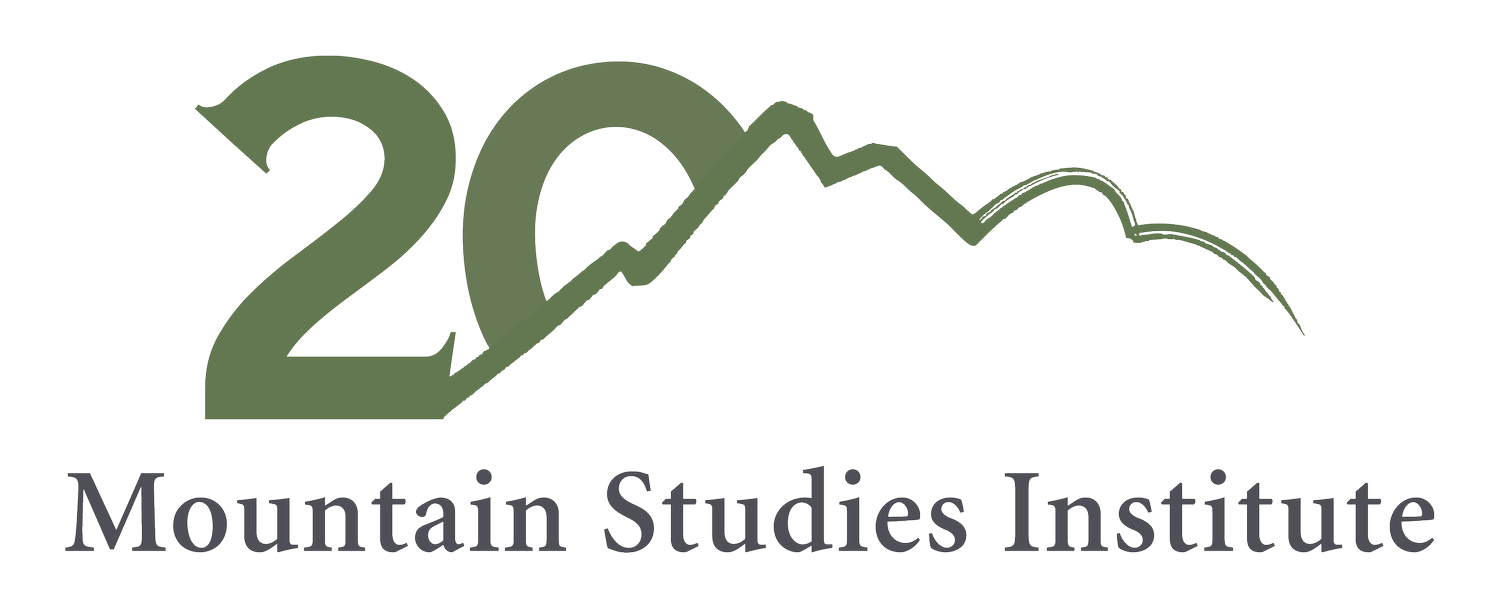Madison Morales
Interview with former FC-FLIP intern, Madison Morales
MSI: When did you work for MSI and for how long?
MM: I worked the summer of 2016 starting at the end of May until the end of October.
MSI: What brought you to MSI in the first place?
MM: During the time I attended Fort Lewis College, someone on campus had told me about the internship program MSI offered. So, I went to their website and read about their mission and what they did for the community. After seeing what the internship was all about, I knew it would be an awesome opportunity.
MSI: What did you work on during your time with them?
MM: I was a range tech intern with the forest service, and my worked varied a lot from day to day, but a lot of what I did was rangeland management. I focused on the cattle grazing on public lands, whether or not it was done in a healthy matter, and how we could make it better. To do this, a lot of my work consisted of different vegetation and utilization surveys. I also did a lot of weed mitigation for noxious weeds. For the most part, the big areas affected by these noxious weeds were mapped out, making it easy for us to go in and either spray them or set a bio control on them, eradicating them as best as we could from our area.
MSI: You were offered four jobs before your summer internship ended, what were those opportunities?
MM: The jobs that I was offered were all through the Bayfield, Columbine ranger district. I got offered a job back with the crew I was with before, which was the range crew. I was also offered a job with the forestry crew in the same location, working under Gretchen Fitzgerald. I also got offered another opportunity for an internship the next summer with a fisheries specialist, working on a cutthroat trout restoration project. And then, I also got offered some work with MSI after I got off, so I was able to go with them and do a couple different field studies. I went out to Telluride with Amanda Kuenzi, who is the community science director for MSI. I also went out with Amanda and Anthony Culpepper to do some forestry work. I got offered a position with the trails crew out in the Bayfield field office as well.
MSI: What was your experience like with MSI?
MM: It was absolutely amazing and it was really nice to have their support through everything. We did our training up in Silverton which was an awesome group bonding activity. Through that training, we got to learn a lot about the ins and outs of federal land agency jobs, accompanied by a variety of guest speakers. We also got our Wilderness First Aid training, which was really cool and a nice add-on to our resumes. Throughout my time there, it was really nice that they could check in with us and offer us support.
MSI: What is your biggest takeaway from having worked with them?
MM: My first takeaway, the one I found to be the most valuable, was learning what it takes working for federal land agencies. Within that, I learned how to really apply for jobs, how to interview for them and once I’m in the job, how to manage my time, work well, and use my resources.
My second takeaway is that I strive to work for a place like MSI in my future. This involves trying to find a community-oriented organization such as MSI and trying to make conscious steps in that direction to hopefully, one day, get a job where I can give back to my community while still doing the job that I love.
MSI: How did you get to where you are today, working for the BLM in Montana?
MM: I was working for BLM, but my season ended with them the end of October. To find the position, I was on USA jobs and I was applying for a lot of jobs. The BLM position was a range tech job that was offered in 15 or so different locations and I got to pick my top choices. With this opportunity, I wanted to go somewhere new and see if I liked it. It took a while, but I got a response and I was able to get in touch with my supervisor and let her know about my previous experiences. Normally, they can’t hire someone on the spot, but she said with all my experience, I was basically hired.
MSI: What, if any, was MSI’s role in shaping both your personal and/or career path?
MM: I was able to use Amanda (of MSI) as a reference as well as mentors from the internship, which helped a lot. It looked really good on my resume for her, as a range specialist, to contact another range specialist who I had already worked for.
MSI: What is drawing you back to Durango and the Forest Service here?
MM: I would like to work ideally again in the Bayfield office this next summer and I’m going to try to work for a different branch of that just to kind of round myself out, so I’m looking at the forestry position, with Gretchen Fitzgerald, but I’m really open to anything.
I love Durango, it’s a great place to live. You can’t beat the San Juan Mountains, and because I have so many opportunities in the columbine ranger district and Bayfield I thought that it would be a good place to come back to.
MSI: What did you want to be when you were growing up? Is it still the same today?
MM: I was all over the place, but if I could tie it all back to what I’m doing now, one of my dream jobs was to be a cowgirl. I loved horses when I was little and I guess I kind of fulfilled that dream the past two summers because I worked with horses in Durango and out in Montana as part of my job. I got the ride them around the wilderness, pack them on backpacking trips, and take care of them for the two summers. So, I guess I did kind of become a cowgirl, working with cattle in the cattle industry and working with horses almost daily. What I’m doing now is more of my dream then before, but when I was younger I didn’t really know what being a biologist was, so I think it’s a much cooler version of being a cowgirl.
MSI: Who is your role model?
MM: This is always a difficult question for me because there are different types of role models that I have, like family or faith-based role models. Family based, I would say my great grandmother. She was a single mother in the 50’s and 60’s when it wasn’t normal to be a single mother. She had to do what it takes to raiser her daughter, so she had to get a job and raise my grandmother in a time when that wasn’t really happening. She was a very strong, independent woman and knew how to take care of herself. For the most part, she dated and there were some men in her life, but she was always ready to kick them to the curb if they weren’t making her happy. I kind of strive for that myself, being independent and not relying on a partner
MSI: Working with environmental organizations like MSI and the BLM, what do you hope to accomplish or share with the public through your work?
MM: I guess a big thing for me of course, is sharing that climate change is real and that it’s coming up to your doorstep right now. This is an actual issue that’s not just going to be affecting the people in the North and South pole, or the people that are shorefront with rising water, but, it’s actually coming to the San Juan Mountains and I can prove that to you. Being in the mountain, it seems like we are safe, but I can show people that’s not the case I think that’s one big thing for me, is to be able to lift that blindfold.
As for being a part of the change, it’s not always easy to be a big player in climate change. And as people like us, we are really fresh out of college and our voice is heard, but we aren’t quite on the administrative side. For me, it’s just doing my job to the best of my ability, considering what my impacts are day to day and how one day I can shape them for something bigger in the future when I can play a bigger role.
MSI: How would you describe MSI and what they do to someone who has never heard of them?
MM: It’s a community-oriented science organization that does both community outreach and education programs to educate the public. They are conducting research, not only to be helpful to the area and restoration, they are doing it to show the community what is going on in the area and how we can fix it. They pair up with different organizations, like the Forest Service, and they present the issue and how they going to fix it. They are then able to follow through and they can pull the community, allowing them to be a part of the project and actually executing an idea from start to finish.
MSI: Is there anything that I haven’t asked that you would like to talk about or share?
MM: I’m really grateful for MSI and I’m really grateful that they are a part of this community. I’m grateful for the projects they do and their passion and commitment to educating the public about the area that they live in and how they can get involved. I think of MSI more as a group of friends than an organization.
They have done amazing things for the community and for me, by giving us great opportunities to grow and learn and have a network and be able to go out in the world and feel confident. To be able to get amazing jobs and not flail when we have them. They give us a stable foundation of how to get a job, how to communicate with supervisors, how to ask questions and how to functionally work for them.
They are just awesome. I love them so much and if I could have a job with MSI that would be my dream. I feel like a lot of them are experts at everything, just the jack of all trades and I strive to be that.
Learn more about our FC-FLIP internship here: http://www.mountainstudies.org/2018-available-positions/




